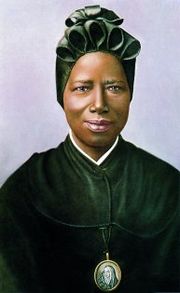The universal call to holiness reminds us that we are called to sainthood. We accomplish this by adopting the mind and heart of Jesus as expressed in the Beatitudes’ values. Over the next several months, we will present each of the Beatitudes, suggested personal challenges, related Catholic Social Teachings as well as saints whose lives have exemplified the values of Jesus. Additionally, each week we will offer a quote from Rejoice & Be Glad – Gaudete et Exsultate by Pope Francis for your reflection as you read his apostolic exhortation. If you did not receive a copy of this book, more have been ordered or you may also read the book online by following this LINK.
Catholic Social Teaching Introduction:
- The Best Kept Secret of the Catholic Church The Beatitudes have a social dimension that guides us in our communal lives. The church’s social teaching is a “treasure of wisdom about building a just society and living lives of holiness amidst the challenges of modern society” (USCCB). Being holy has a personal and a social dimension and we are called to respect all humans as God’s children. Pope Francis includes addressing issues of social injustice as part of developing holiness and identifies as sacred the lives of the poor, destitute, abandoned, underprivileged, infirm, elderly, and victims of human trafficking and modern forms of slavery (102). The U.S. Bishops identify 7 themes of the social teaching of the church; we will highlight one of these themes each month in connection with the Beatitude for the month as we challenge ourselves to respond to the Call to Holiness.
Challenge:
- As a family make a list of your blessings. When a family member is feeling down, refer to your list and remind each other to be grateful and happy when following the Lord.
- Ask each family member to state his or her favorite Beatitude, an attitude that accompanies it, and how to live out that Beatitude.
Saint of the Month:
 St. Josephine Bakhita: She was kidnapped as a child and sold into slavery. Eventually, she was made the slave-servant for a girl attending a convent school run by the Canossian Sisters in Italy. Bakhita became a Christian andfell in love with the convent, and when the girl's parents came to collect their daughter and her servant, Bakhita refused to leave. She went to court, supported by the sisters, and won, as slavery was illegal in Italy. She then joined the Canossian Sisters and spent 50 years as a religious, dying in 1947. She was canonized in 2000.
St. Josephine Bakhita: She was kidnapped as a child and sold into slavery. Eventually, she was made the slave-servant for a girl attending a convent school run by the Canossian Sisters in Italy. Bakhita became a Christian andfell in love with the convent, and when the girl's parents came to collect their daughter and her servant, Bakhita refused to leave. She went to court, supported by the sisters, and won, as slavery was illegal in Italy. She then joined the Canossian Sisters and spent 50 years as a religious, dying in 1947. She was canonized in 2000.


